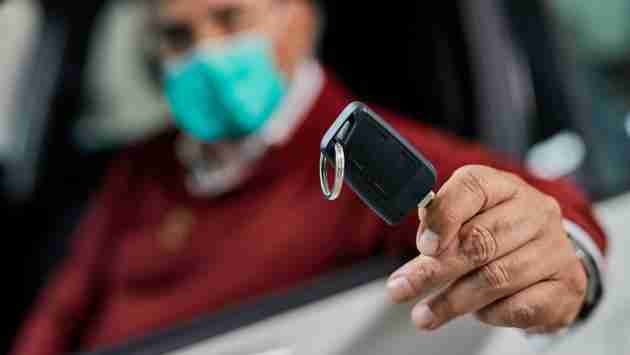Amid the spike in tourism in Hawaii that’s accompanied spring break, daily car rental prices have skyrocketed into the hundreds, reaching up to $1,000, owing to a lack of inventory in providers’ fleets. The issue has now caught the notice of state authorities, who say they’re extremely concerned about the current cost to rent a car and are questioning whether such sudden and dramatic fee increases are even legally justifiable.

“I don’t want to prejudge anyone or any company, but I think it certainly deserves our attention. We are going to be investigating the underlying basis for charging such great amounts to rent a vehicle,” said Stephen Levins, executive director for Hawaii’s Department of Commerce and Consumer Affairs.
When the COVID-19 pandemic struck and air travel essentially ceased in the early part of 2020, many car rental companies, potentially facing financial ruin because of vanishing demand, sold off large portions of their fleets to try and recoup come capital. Now, with the stark and sudden increase in visitors from the mainland, the supply of available vehicles is simply too low to meet demand. Even so, officials plan to examine the ethics of raising rental prices so astronomically.
“For whatever reason, the demand has driven up the price, but again, I want to emphasize that supply and demand is not the be-all and end-all. When we do an analysis on this, just because there is a diminished supply doesn’t necessarily mean that a company is justified in increasing the cost,” said Levins.
Local news outlet KHON2 discovered that some especially opportunistic island residents are even buying vehicles to rent out to tourists. Reporters spoke with Amy Weed and Jeremy Jones, who both rented out their vehicles through a peer-to-peer car-sharing platform called Turo. The two said they’ve noticed new hosts appearing in the area recently.
Jones, owner of the Honolulu -based outfit WeedriveTesla, said, “Just in the last week and a half, I’ve seen several new hosts or current hosts that’s adding vehicles to their fleets.”
When there are no rentals to be had, the other ready means of on-island transportation is, of course, taxi hires. Howard Higa, president of Oahu’s largest taxi dispatch company, TheCAB, said, “Our businesses doubled, tripled and that’s a good thing. But the point is, if you can’t service it, it doesn’t mean anything.” He explained, “A lot of times we’ll have like 20, 30, 40 customers waiting for a ride and we can’t even handle through our dispatch. We can’t even handle with the drivers. We don’t have that many drivers to do that.”
So, it seems that even taxis are haven’t enough supply on hand to satisfy all of these tourists, but you won’t see cab fares shooting up just because demand is high. Higa noted that taxi rates are regulated by the City Council and believes that other transportation services should likewise be subject to price caps and fee regulations. “I believe there’s got to be a cap,” Higa said. “The cab companies are all regulated and we’re struggling because of that. We haven’t had a price increase over 10 years.”
Levins said that anyone with concerns about the car rental price hikes can file a complaint through his office .
“We have a very robust law here in Hawaii where, if you engage in unfair, deceptive trade practices, the penalties can be $500 to $10,000 per violation,” Levins explained. “So, they’re very serious consequences for anyone who violates our laws.”

Leave a Reply